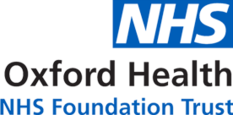ObjectiveThere is increasing interest around the relationship between clinically defined recovery from Anorexia nervosa (AN), based on a reduction of symptoms and weight normalisation, and personal models of recovery which emphasise factors such as personal growth. The purpose of this mixed methods study was to evaluate the hypothesis that these two approaches are complimentary, with reduced symptoms associated with higher achievement in personal domains.MethodsEighty-one adults who self-defined as fully or partially recovered from AN were recruited into an online study and completed self-report measures of clinical and personal recovery. Participants were also asked questions about their views on the clinical criteria, and this data was analysed using thematic analysis.ResultsPeople who were clinically defined as fully recovered scored significantly higher on measures of personal recovery compared to those defined as not recovered, and there were strong positive associations between lower behavioural and cognitive symptoms, and personal recovery. There was a weaker relationship between personal recovery measures and BMI. Qualitative data indicated that most participants felt that the clinical criteria were not a sufficient definition of recovery.ConclusionsImplications for the usage of clinical criteria for recovery from AN in research trials and clinical practice are discussed.
Humans
,Anorexia Nervosa
,Adult
,Self Report



